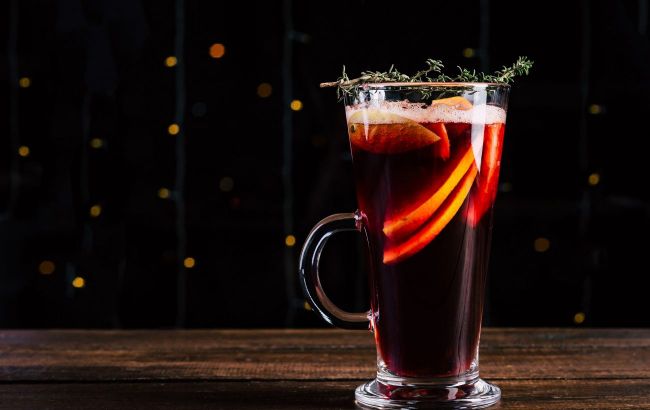Gluhwein: Who should avoid it and healthier alternatives to consider
 Illustrative photo (Photo: pixabay.com)
Illustrative photo (Photo: pixabay.com)
Gluhwein - a popular winter beverage. It helps to warm up, provides cheerfulness, and improves mood. It is sold in cafes, at fairs, at ski resorts, and is happily made at home. However, not everyone should consume this drink.
Wprost, explains who should avoid drinking mulled wine and what can be used as a substitute.
Why Gluhwein might be risky
Gluhwein is typically prepared with red wine (though white wine-based variations exist) and infused with cinnamon, cloves, honey, orange, and other warming spices.
While Gluhwein is often considered an ideal drink to warm up, doctors caution against this perception. Shortly after consuming the beverage, there is a spreading sensation of warmth throughout the body. When alcohol is consumed, blood vessels in the skin expand, causing more blood to flow to the surface of the body, creating an initial feeling of warmth—but only temporarily.
As warned by the Federal Center for Health Education in Germany (BZgA), after a while, the skin releases heat, and body temperature drops. If a person does not adequately protect themselves from the cold, it can be said that alcohol cools the body.
"Alcohol dilates blood vessels, especially capillaries beneath the skin. They are responsible, among other things, for increasing blood flow to the extremities, creating an illusion of warmth. Even 50 grams of consumed alcohol can lower body temperature by half a degree," explains Polish cardiologist Dr. Adam Janas.
Who should avoid Gluhwein
Gluhwein is not recommended for children and pregnant women due to its alcohol content. Additionally, individuals with circulatory system disorders and heart problems should exercise caution when consuming this beverage.
Dr. Adam Janas warns that alcohol can lead to irregular heartbeats, arrhythmia, tachycardia, hypertension, elevated levels of LDL (bad) cholesterol in the blood, and an increased risk of atherosclerosis.
Alternatives to Gluhwein
For those who enjoy the taste of Gluhwein, a non-alcoholic alternative can be considered. It can be prepared with grape or cherry juice, as well as apple or regular tea.
Key additives include ginger, cloves, nutmeg, cinnamon, and anise, which provide the beverage with its distinctive aroma and warming effect.
This non-alcoholic Gluhwein can be sweetened with honey, fruit syrups, or raspberry juice.
Earlier, we wrote about the benefits of cinnamon and who should include it in their diet.
We also shared information about a dietitian-recommended magical drink for detoxifying the body.
This material is for informational purposes only and should not be used for medical diagnosis or self-treatment. Our goal is to provide readers with accurate information about symptoms, causes, and methods of detecting diseases. RBС-Ukraine is not responsible for any diagnoses that readers may make based on materials from the resource. We do not recommend self-treatment and advise consulting a doctor in case of any health concerns.

